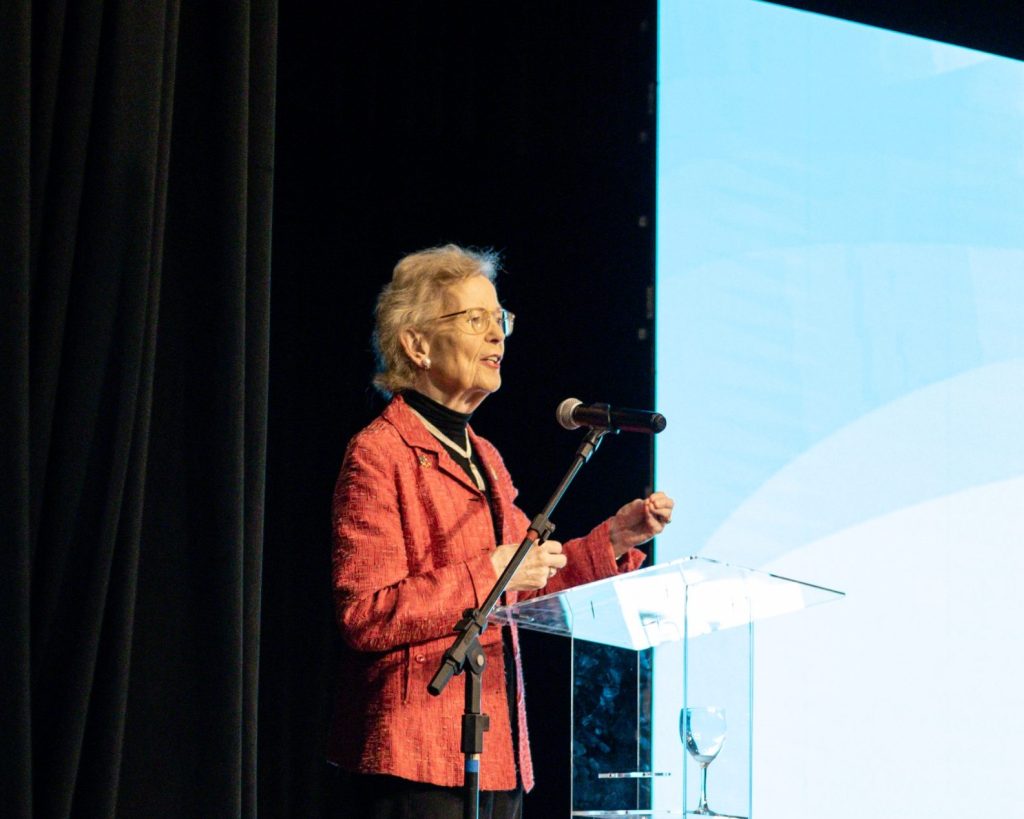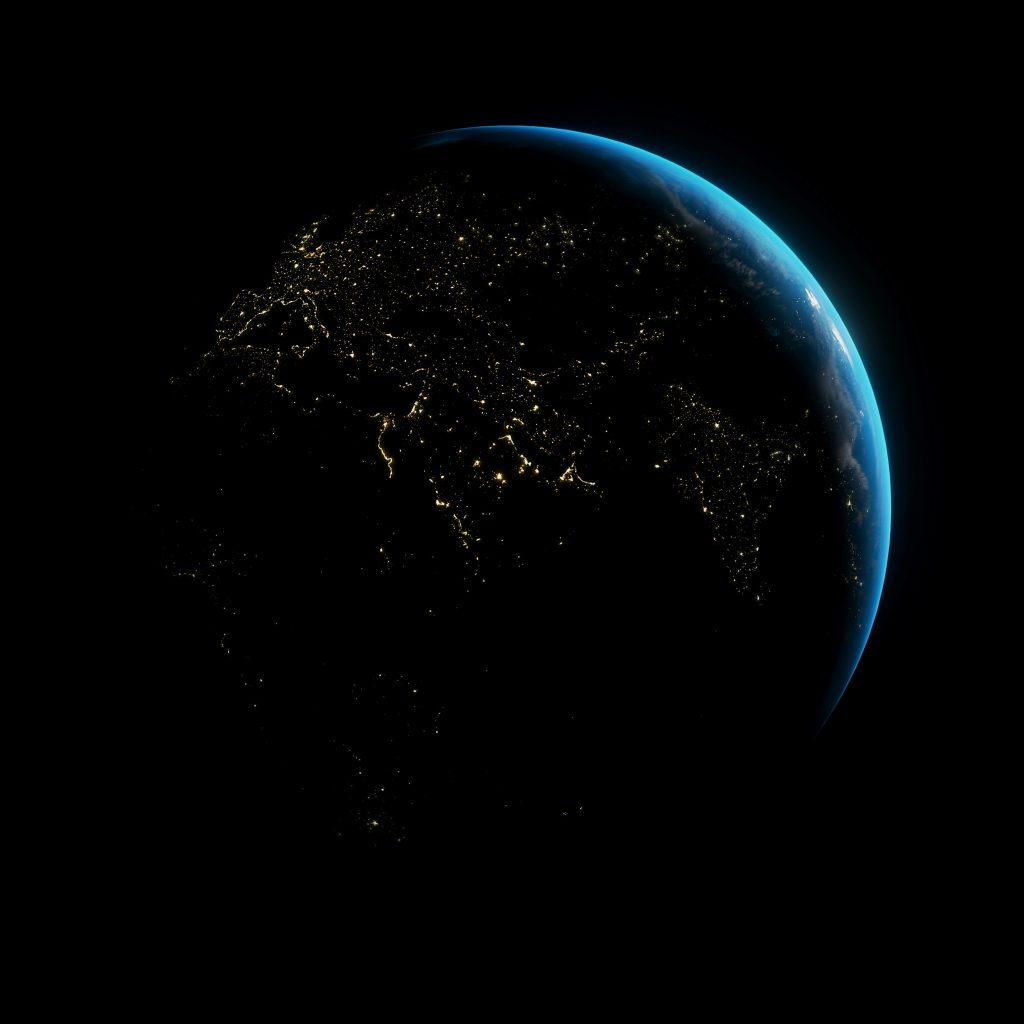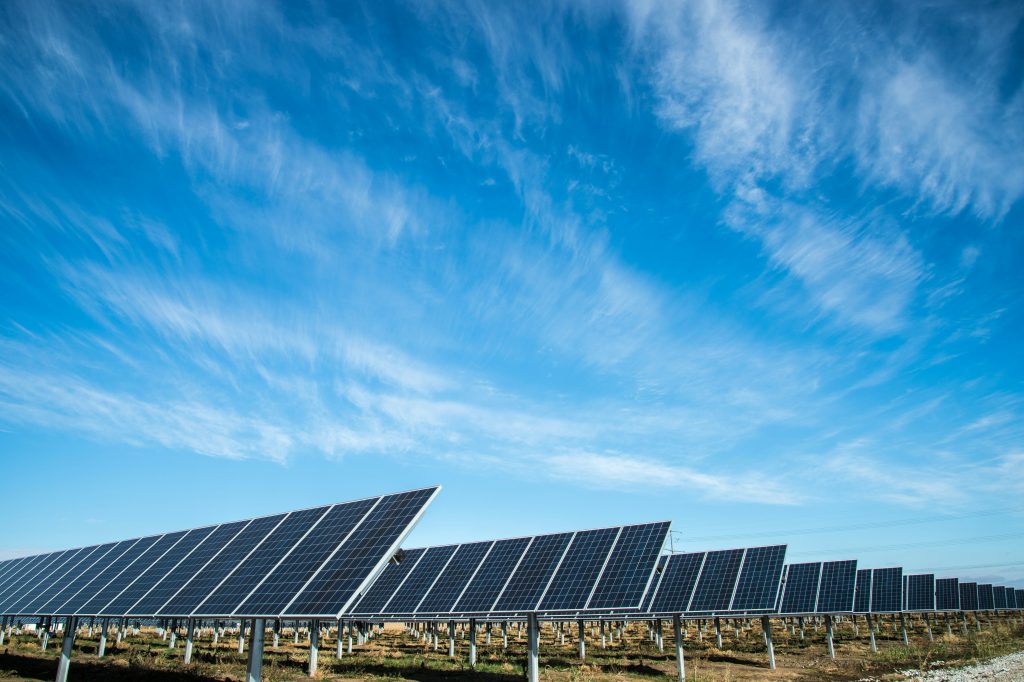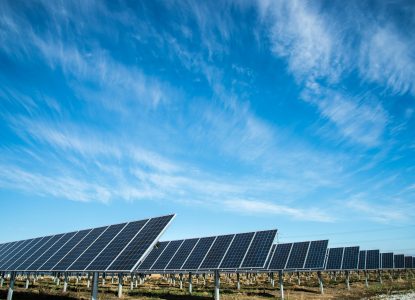By Mary Robinson, Chair of The Elders.
In a powerful and impassioned speech at the G20 Interfaith Forum on August 20, 2024, Mary Robinson, Chair of The Elders and former President of Ireland, delivered a compelling call to action on climate change and environmental stewardship. Speaking not only as a global leader but also as an “angry granny,” Robinson emphasized the critical role of diverse voices, including those of faith leaders and religious communities, in addressing the climate crisis. Her address underscored the urgency of the situation, the disproportionate impact on vulnerable populations, and the need for immediate, decisive action from world leaders.
– – –

It is an honor to be here with you at the G20 Interfaith Forum. The theme this year – “Leave No One Behind: The Well-Being of the Planet and Its People” – resonates deeply with me.
I speak to you today as Chair of The Elders, the group of independent global leaders founded by Nelson Mandela. We are committed to advancing peace, justice, human rights and a sustainable future for our planet. Frankly, I also speak as an angry granny!
Earlier this year, I was in Brazil with eight fellow Elders. We had the pleasure of meeting with young climate leaders, black and indigenous activists, as well as the Minister of Racial Equality Anielle Franco and the Finance Minister Fernando Haddad. As the current holder of the G20 presidency and the host of next year’s global climate conference COP30, Brazil is uniquely positioned to mobilize the world to address the crises we face.
Today, I want to talk further about how we can create a sustainable planet, one where our climate is stable and our nature restored, and where people thrive. This requires a holistic approach drawing on the diversity of civil society as well as sustained political leadership, and in which faith leaders and religious communities can play an important role.
I realize these are not novel ideas for this distinguished audience.
Just last year, Pope Francis released Laudate Deum, his response to the climate crisis and his hope for how societies must address it.
In 2015, when the landmark Paris Agreement was adopted, Islamic and Hindu leaders called for urgent climate action in their declarations ahead of the summit.
Religion is no stranger to the concept of caring for our planet.
Buddhism offers important teachings about how interconnected and interdependent everything is on our planet. About how human beings are part of the environment, and vice-versa.
The same idea is at the core of many indigenous religions. Indigenous peoples have a deep kinship with nature and profound understanding of the importance of caring for nature in order to care for humanity.
Sadly, we know this wisdom has not prevailed over the past centuries.
Today, our planet is on a path of runaway climate change due to the rate of global warming. The Earth is warmer than it has been in the last 125,000 years.
This makes extreme weather events more severe and more frequent.
Just last month, typhoon Gaemi wreaked havoc in the Philippines, Taiwan and China, killing over a hundred people, and displacing hundreds of thousands.
When I was in Brazil last May, severe floods in the south of the country killed and injured hundreds and displaced half a million people.
Earlier this year, thousands of wildfires burned through the Amazon rainforest, threatening its collapse. And last year’s wildfires in Canada burned more forest area than in all recorded North American history.
And just a few months ago, 1,300 people perished from deadly 47C heat during the Haj pilgrimage in Saudi Arabia.
And it’s not just a climate crisis. It is a climate and nature crisis.
Since 1970, we’ve seen a 69% drop in wildlife populations. The ocean, which is the largest ecosystem on Earth, teeming with wondrous life, is experiencing increasing acidification and marine heatwaves, threatening countless species.
Our planet is undergoing its sixth great mass extinction. This should alarm us all.
But we know the root causes, which is the first step in solving this crisis.
First, the burning of coal, oil and gas accounts for three quarters of global greenhouse gas emissions. These emissions blanket the Earth and trap the sun’s heat, driving the climate breakdown we’re experiencing.
Scientists have been raising the alarm for decades now. And yet fossil fuels continue to represent 80% of our total energy supply, still polluting the air we breathe and threatening life on Earth.
Second, the way we produce, process, package and transport food is responsible for a third of emissions that heat our planet.
Our global food system is also the primary driver of biodiversity loss. This is largely because we’ve converted natural ecosystems for farming and grazing. We have already altered 70% of the land, destroying habitats and the sources for food and shelter that wildlife depends on.
The loss of nature is an existential threat for over a quarter of the global population which depends on its resources for their livelihood.

The climate and nature crisis confronts us with major ramifications for food and water security. More frequent extreme weather events threaten food production worldwide, while our limited supply of freshwater is dangerously dwindling every year our planet continues to heat up.
Left unchecked, this crisis’ greatest toll will be on human life itself, with a direct cost to health estimated to US$ 2-4 billion per year by 2030 and increasing humanitarian emergencies.
And let us not forget that this crisis is a profoundly unfair one. The most vulnerable, who have contributed the least to the problem, are already suffering the most.
More frequent hurricanes, rising sea levels and coastal erosion are threatening small island developing states and their very existence.
Extreme flooding in Pakistan in 2022 submerged one third of the country and affected 33 million people.
And the list sadly goes on.
Each of these countries has emitted well below 1% of global greenhouse gas emissions. This disproportionate burden should outrage us. And we must transform this outrage into action.
Because, if there is one thing you should take away from this speech, it is that however devastating this crisis is, we are not helpless against it. Far from it.
As my dear friend the late Archbishop Desmond Tutu used to say, I am a prisoner of hope. I know we can tackle the climate and nature crisis. Solutions are already underway, and we must support and accelerate them.
Renewable energy is being built at an unprecedented rate, with each new gigawatt of clean energy moving us one step closer to phasing out fossil fuels.
At last year’s COP28 climate conference, world leaders agreed to triple global renewable capacity by 2030. This ambitious goal can make all the difference in averting the worst impacts of climate breakdown for today’s generations.
Food producers across the globe are already shifting towards regenerative practices, which both reduce harm to nature and actively restore it. Regenerative farming alone could provide a third of land-based climate action needed by 2030.
At their local level, farmers, fishers, agroforesters and many others are leading the way to help transform our global food system from an extractive to a restorative one.
Coupled with measures to improve the transport and processing of food, and to reduce food waste, we can not only mitigate climate change and support nature, but also enhance the resilience of our food system, in turn helping achieve food security.
This is the beauty of these transitions. They can have a ripple effect on innumerable facets of society. They can help solve many interconnected crises today and for generations to come.
And this is an important point. We must remember that we don’t just inherit this earth, we are borrowing it from future generations.
Indigenous peoples speak of the Seventh Generation Principle, which invites us to think of the decisions we take today and whether they will result in a sustainable world seven generations in the future.
So how do we make the right decisions today? I believe it starts with having more diverse voices at the table and creating greater pluralism.
We need better representation of women, youth, LGBTI communities, indigenous peoples and marginalized groups in the decision-making process. This can help deliver the inclusive, transparent and accountable mechanisms we need.
Above all, we need to encourage a sense of connection between all of us striving for that healthier, fairer, renewable-energy powered world. That is what Project Dandelion – a women-led climate justice movement – is seeking to do. We are inspired by the dandelion, which grows on all continents, is both resilient and regenerative of the soil, can be consumed in its entirety, and is spread by blowing its seeds.
Already, Project Dandelion has connected with a Multi-faith Women-led Climate Action Network, and I am pleased to be invited to their second meeting in Rome in October. Connecting networks like this is a way of growing our power to influence climate and nature outcomes. Project Dandelion is women-led but not women only. As well as faith-based groups, we hope to link with indigenous communities, young people, progressive business, scientists, artists, farmers etc., and show that we are in fact the majority in the world.

And from world leaders, who are the ultimate decision-makers on the global stage, we need long-view leadership.
We need to persuade decision-makers to understand the urgency of the existential threats we face and to believe in our ability to overcome them.
Long-view leaders must have the moral strength to address both current concerns and long-term risks, often at the expense of vested interests. They must think beyond short-term political cycles and deliver solutions for both current and future generations.
This is a call The Elders made to world leaders earlier this year. A call that I reiterate today. A call that I urge you to make with us and which I hope can become a rallying cry in your communities around the world.
Imagine the change we can create if we all join our voices.
We’re on the cusp of a wonderful, safer, fairer, cleaner, healthier world. We are moving towards it, but not fast enough for science.
Our leaders must accelerate the transition away from extracting industries and fulfil their promises to deliver on the global climate and nature goals.
They must seize the opportunity this year during the G20 meetings, at the COP16 nature conference in Colombia, at the COP29 climate conference in Azerbaijan and at COP30 next year in this country.
Later is too late. I call on world leaders to deliver the finance needed for nature and climate which is the focus of COP29 this year. Only then can we create a just and equitable transition that safeguards the rights of the most vulnerable and of future generations.
– – –
Mary Robinson is the first woman President of Ireland and former UN High Commissioner for Human Rights; Chair of The Elders; a passionate advocate for gender equality, women’s participation in peace-building, human dignity and climate justice.


